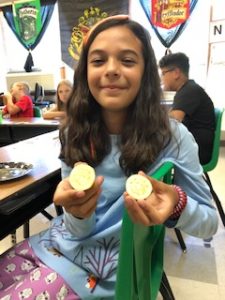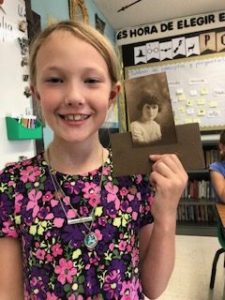History & Geography
This week we continued learning about World Lakes. Our objectives were:
- describe Lake Tanganyika, Victoria, and Chad as well as their continent
- describe Lake Titicaca and Maracaibo as well as their continent
- describe the Great Lakes as well as their continent
- describe Lake Baikal, the Caspian Sea and the Aral sea as well as their continent
Mathematics
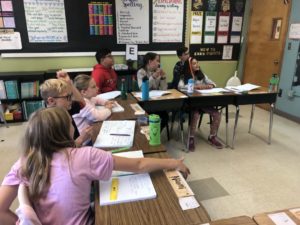 This week we began our first chapter, Whole Numbers. Our objectives were:
This week we began our first chapter, Whole Numbers. Our objectives were:
- review prior knowledge needed to complete this chapter
- read and write numbers to 10,000,000 in standard, word, and expanded form
- identify the place value of any digit in numbers to 10,000,000
- compare and order numbers to 10,000,000
English
This week we began our first writing lesson Sentence Structure. Our objectives were:
- understand and identify complete sentences (subject and predicate)
- identify sentence fragments and run-on sentences and fix them
- Find the topic sentence and write details based off a topic sentence
- write our first spelling list quiz next Friday, Sept. 20
Lectura
Essential Questions: How do you define heritage? How does heritage affect who you are? How is cultural heritage passed through generations?
Reading Comprehension Strategies: Making Connections, Visualizing, Summarizing, Author’s Point of View
Our objectives for this week in literacy were to:
- Explain the characteristics of autobiographies and discuss the author’s point of view.
- Apply reading comprehension strategies such as making connections, visualizing, and summarizing when reading the selection.
- Write a list of ideas that can be developed into possible narratives.
- Study the spelling patterns of words with stress on the last syllable.
- Learn about proper and common nouns.
- Acquire and use accurately grade-appropriate general academic and domain-specific language; gather vocabulary knowledge when considering a word or phrase important to comprehension or expression.
- Determine a central idea of a topic and how it is conveyed through particular details; distinct from personal opinions or judgments.
- Analyze in detail how a key individual, event, or idea is introduced, illustrated, and elaborated in a context (e.g., through examples or anecdotes).
Ciencias
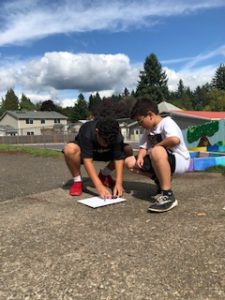 This week, pairs of students constructed Sun trackers. After using a compass to orient the Sun tracker north-south, students made hourly records of the position of the tip of the shadow cast by a golf tee. Students imagined themselves as observers on Earth and positioned around a lamp to observe day and night. They discover that rotation of Earth results in day and night and, in the process, figure out which direction Earth rotates on its axis.
This week, pairs of students constructed Sun trackers. After using a compass to orient the Sun tracker north-south, students made hourly records of the position of the tip of the shadow cast by a golf tee. Students imagined themselves as observers on Earth and positioned around a lamp to observe day and night. They discover that rotation of Earth results in day and night and, in the process, figure out which direction Earth rotates on its axis.
Character Education
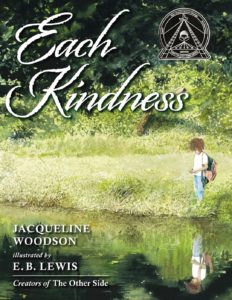 This month in Character Education we are focusing on Kindness. We have done a few hands-on lessons with cotton balls, sandpaper, a tub of water with rocks/leaves/feathers/pinecones. Our objectives for the lessons were:
This month in Character Education we are focusing on Kindness. We have done a few hands-on lessons with cotton balls, sandpaper, a tub of water with rocks/leaves/feathers/pinecones. Our objectives for the lessons were:
- What makes a good friend?
- Words, tone, and facial expressions can affect our message to our friends.
- Cotton ball words/tone/facial expressions are received as kind. (Please, Thank you, May I help you? Good job!)
- Sand paper words/tone/facial expression are not kind.
- Each Kindness by Jaqueline Woodson – to show how each small act of kindness has a ripple effect.
- Compliment circles- practice giving and receiving compliments (say thank you!)

